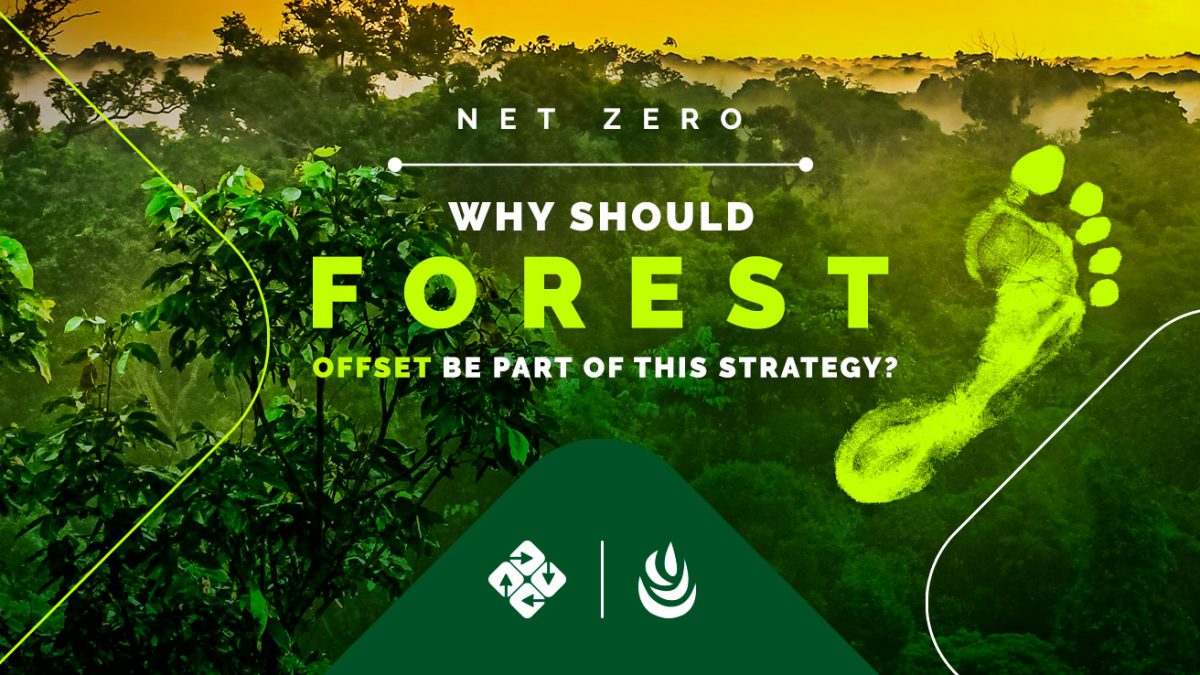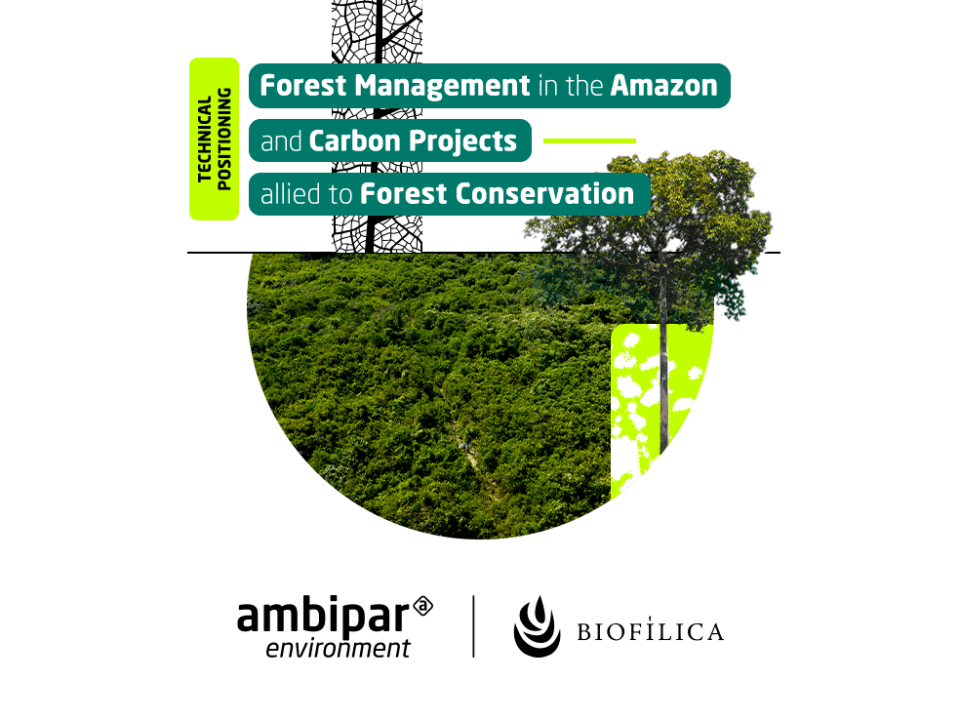Net zero: why should forest offset be part of this strategy?
Reducing emissions as much as possible is the first step in curbing global warming. However, it is unlikely that emissions will be reduced to zero. Find out the best solution to complement the transition.
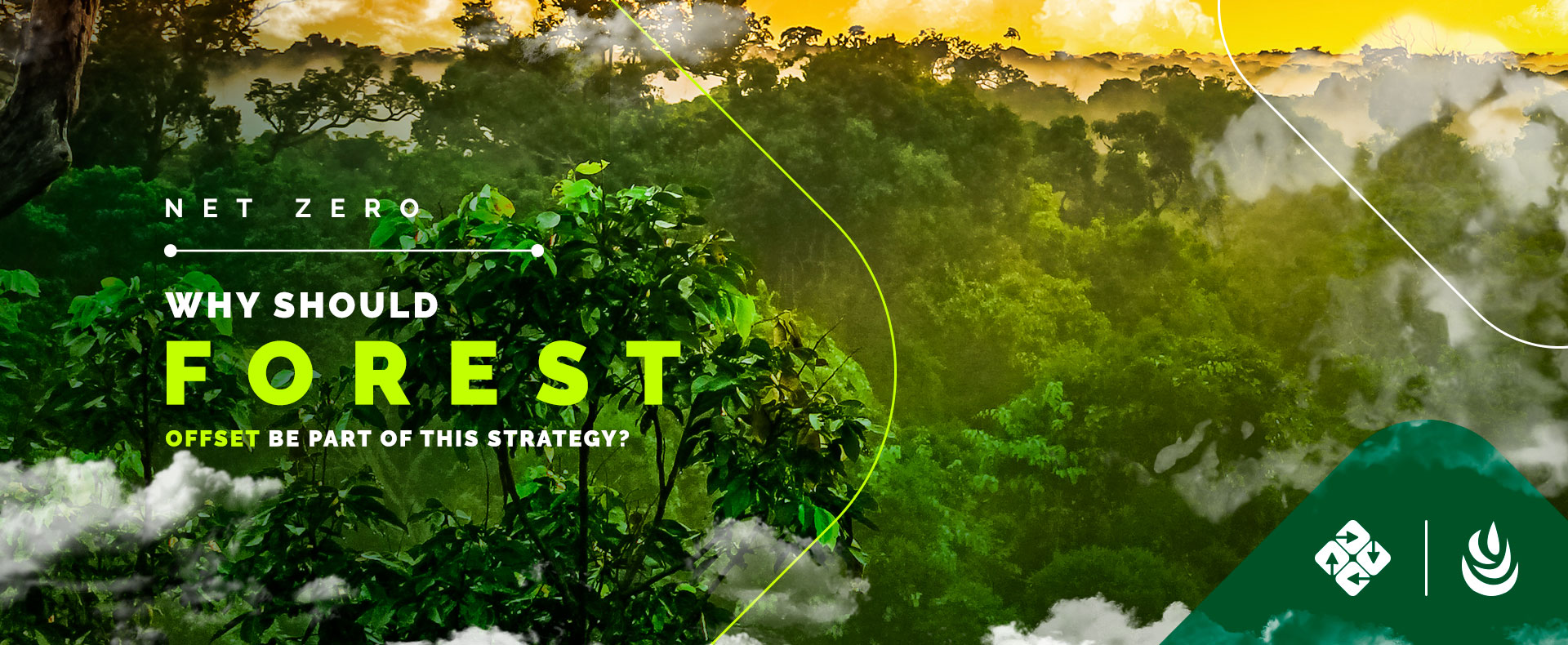
What we do in the coming decades to limit GHG (Greenhouse Gas) emissions will be decisive for the future of our planet. Therefore, it has become common in the private sector companies that stand out in combating climate change by assuming a net zero goal — when greenhouse gas emissions into the atmosphere are balanced by removals during a specified period.1 In other words, net emissions are “zeroed”.
When we talk about a specified period, this refers to a time limit for containing the worst effects of global warming. Under the Paris Agreement, nations are committed to limiting the temperature number to well below 2°C – and ideally 1.5°C – to avoid catastrophic effects. For all this transformation to be realized it is necessary for the world to achieve carbon neutrality by 2050.
A first step towards reaching the Net Zero target is to reduce emissions through process improvements, such as making use of renewable energy and less polluting fuels. However, it is unlikely that 100 percent of emissions will be reduced to zero in the short to medium term.
The NewClimate Institute report states that only 8% of 1565 companies worldwide with Net Zero objectives had robust interim targets. In Brazil, only 19 companies are committed to this initiative, which means that we can still be more ambitious in fighting climate change.
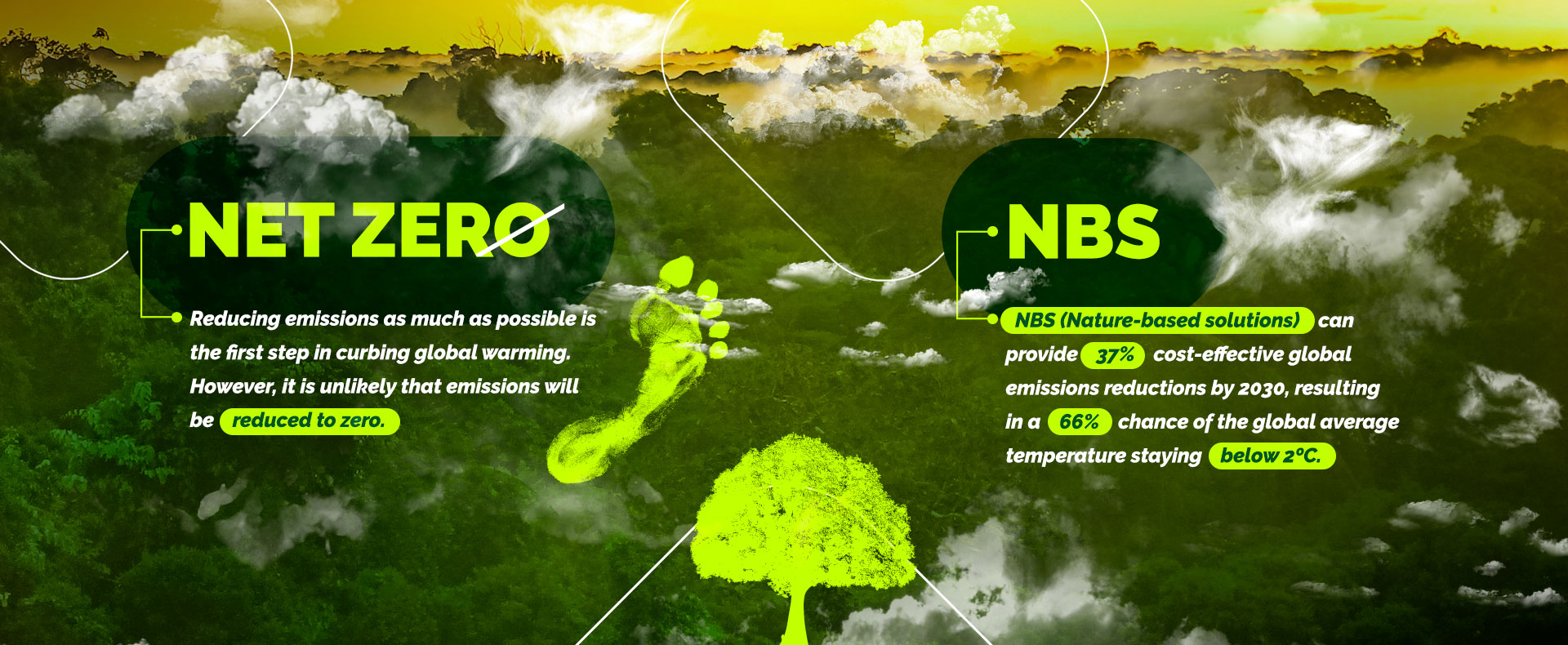
Why are natured-based solutions best suited to neutralize emissions?
Nature-based solutions (NBS) is a concept defined by the International Union for Conservation of Nature (IUCN) as actions to protect, manage, and restore natural ecosystems in a sustainable, effective manner that takes into account the complexities of human well-being and biodiversity.
Nature-based solutions: initiatives that are effective solutions to combat climate change
NBS can provide 37% cost-effective global emissions reductions by 2030, resulting in a 66% chance of the global average temperature staying below 2ºC.3
To complement the transition, the purchase of carbon credits from forest conservation (REDD+) or reforestation (AR – Afforestation/Reforestation) are internationally recognized solutions to neutralize emissions that are harder to subtract.
Deforestation in Brazil is one of today’s major environmental problems. There are numerous consequences to the various regions, being more important for agriculture, livestock and extractivism. The main issue in the country is with the deforestation of the Amazon, which has already reached more than 18% of its territory and contributes to the emissions of GEES (Greenhouse Gases).
According to the 8th Report of the System of Estimates of Emissions and Removals of Greenhouse Gases (SEEG), conducted by the Climate Observatory, Brazil emitted 9.6% more GHGs in 2019, compared to 2018. The country released 2.18 billion tons of carbon dioxide equivalent (GtCO2e) into the atmosphere, compared to 1.98 billion in 2018.
What are REDD+ Projects?
Forest conservation carbon credits (REDD+) are generated through actions to combat deforestation and forest degradation combined with social, climate, and biodiversity activities. Its main advantages are:
- Credits are verified and audited from activities that have already occurred
- Fast delivery process
- Greater potential and scale of generation to address corporate demands for neutralization
- Stimulation of the standing forest economy in regions of low economic development
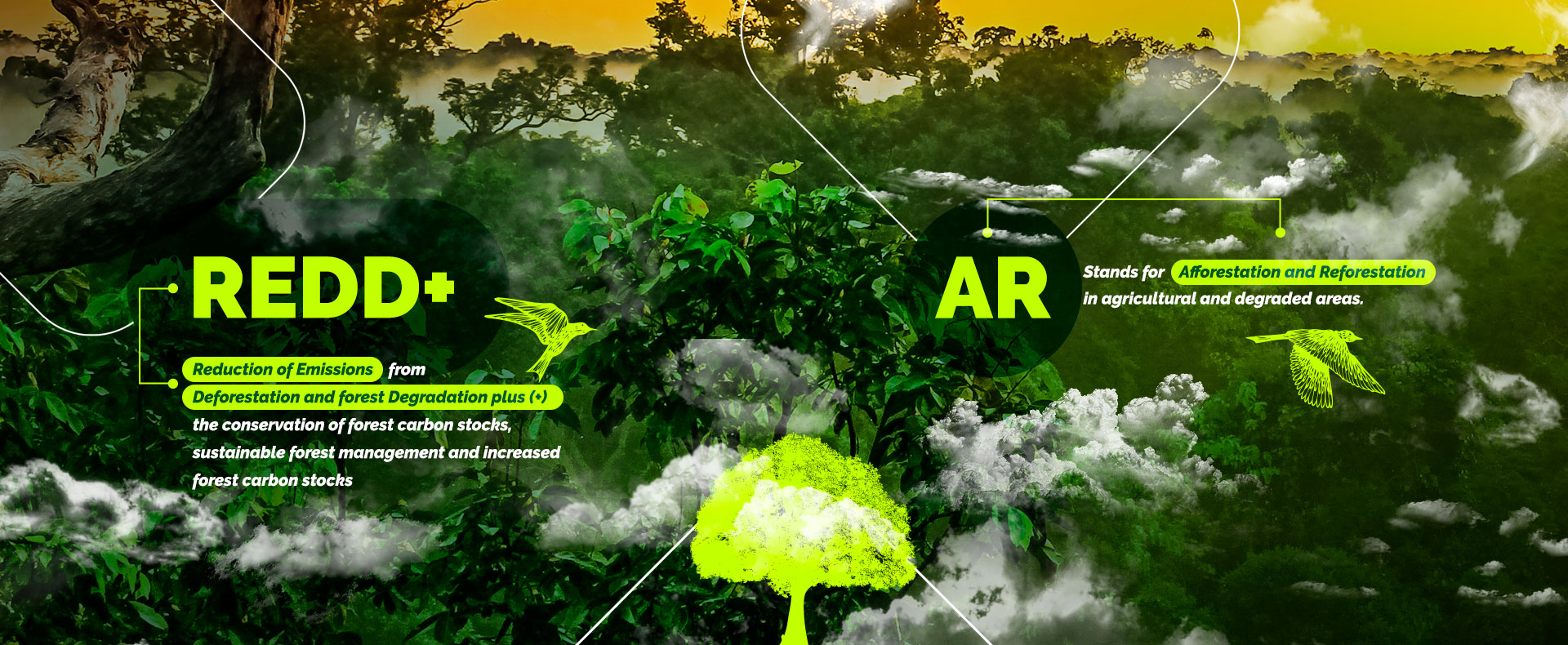
What are AR projects – forest restoration?
Carbon credits from reforestation are generated through the planting of trees in areas where there was no forest (afforestation) and in areas where there was deforestation (reforestation), creating or regenerating a new forest. The main advantages are:
- Carbon credits come from carbon removal (absorption)
- Greater generation of direct local jobs for seedling production and planting
- It can be applied in any biome
Which is the best solution for my company?
Composing an investment portfolio strategy in ecosystem conservation projects added to carbon removal projects are complementary, being first option the most urgent and necessary in the short term.
Resources intended for the maintenance of ecosystems are essential as they create positive incentives for sustainable agro-extractive production and income generation.
Investing in tree planting is now the most effective way to secure carbon offset credits to address long-term net zero commitments and targets.
Biofílica can help your company to be net zero.
1) Source: IPCC, 2018: Annex I: Glossary [Matthews, J.B.R. (ed.)]. In: Global Warming of 1.5°C. An IPCC Special Report on the impacts of global warming of 1.5°C above pre-industrial levels and related global greenhouse gas emission pathways, in the context of strengthening the global response to the threat of climate change, sustainable development, and efforts to eradicate poverty [Masson-Delmotte, V., P. Zhai, H.-O. Pörtner, D. Roberts, J. Skea, P.R. Shukla, A. Pirani, W. Moufouma-Okia, C. Péan, R. Pidcock, S. Connors, J.B.R. Matthews, Y. Chen, X. Zhou, M.I. Gomis, E. Lonnoy, T. Maycock, M. Tignor, and T. Waterfield (eds.)]. In Press
2) Source: SEEG Brasil
3) Sources: União Internacional para Conservação da Natureza [International Union for Conservation of Nature]: https://www.iucn.org/theme/nature-based-solutions/about
Proceedings of the National Academy of Sciences of the United States of America (PNAS): https://www.pnas.org/content/114/44/11645.abstract
WRI: Consideration of Nature-based Solutions as offsets in corporate climate change mitigation strategies.

